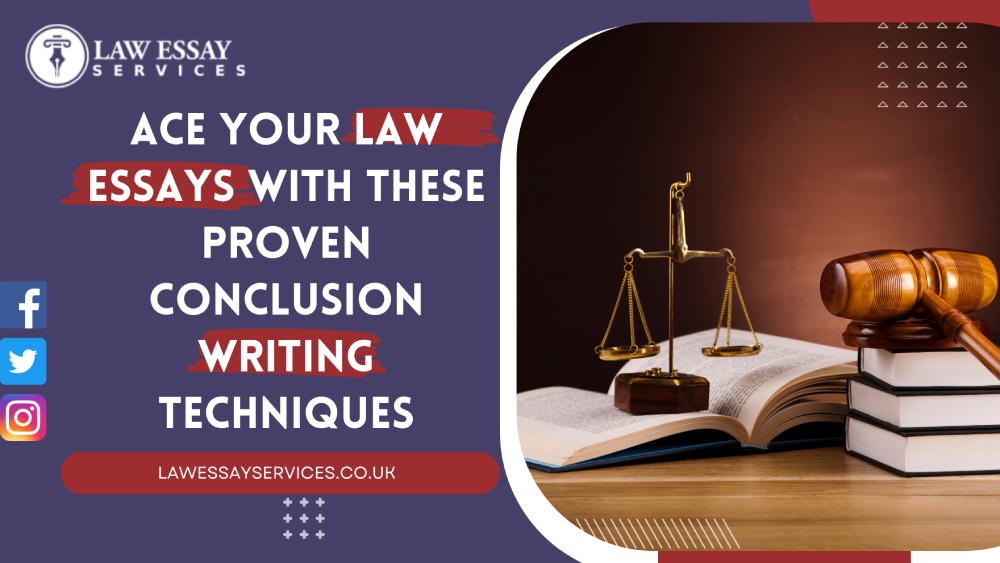Ace Your Law Essays with These Proven Conclusion Writing Techniques

In the world of law essays, the importance of a well-crafted conclusion cannot be overstated. Crafting an effective conclusion is an art that requires finesse, precision, and a deep understanding of the legal subject matter. Your conclusion serves as the final impression on your readers, leaving them with a lasting insight into your argument. It can be the difference between a mediocre essay and one that stands out. In this comprehensive guide, we’ll delve into the techniques that will help you master the art of law essay writing compelling conclusions for your law essays.
Understanding the Significance of a Conclusion
Before we dive into the techniques, let’s grasp the vital role a conclusion plays in your law essay. A conclusion is not merely a summary of your points; it is your opportunity to wrap up your argument, leaving a powerful and memorable impression. A well-structured conclusion can:
1. Summarize your key arguments concisely.
2. Reiterate your thesis statement.
3. Leave a thought-provoking question or idea.
4. Offer a clear and definitive resolution to your essay’s central issue.
Crafting a Winning Conclusion
1. Summarize Your Key Points
Your conclusion should begin by summarizing the main points you’ve discussed in your essay. This serves as a quick recap for your readers and reminds them of the essential aspects of your argument.
2. Restate Your Thesis Statement
Reiterating your thesis statement reinforces your main argument and helps your audience remember the core message of your essay. However, don’t merely copy and paste it. Reformulate it in a way that adds depth and perspective to your essay’s central theme.
3. Pose a Thought-Provoking Question
To engage your readers on a deeper level, consider posing a thought-provoking question related to your topic. This not only stimulates critical thinking but also encourages further discussion and exploration of the subject matter.
4. Provide a Resolution
Offering a clear and definitive resolution to the legal issue at hand can set your essay apart. It demonstrates your in-depth understanding of the topic and shows your capacity to provide practical solutions. This can leave a lasting impression on your readers and even encourage them to consider your viewpoint.
Avoid Common Mistakes
While learning these techniques is crucial, it’s equally important to be aware of common mistakes that can undermine your conclusion’s effectiveness:
1. Introducing New Information
Your conclusion should not introduce new ideas or arguments that were not addressed in the body of your essay. Keep it focused on summarizing and emphasizing the key points you’ve made.
2. Being Repetitive
While restating your thesis is essential, don’t fall into the trap of repeating yourself. Ensure that your restatement adds value and depth to your conclusion.
3. Being Overly Ambiguous
Avoid leaving your readers with vague or unclear ideas. Your conclusion should offer clarity and resolution, leaving no room for ambiguity.
The Final Word
Mastering the art of crafting a compelling conclusion for your law essays is a skill that can set you apart as a proficient legal writer. A well-crafted conclusion leaves a lasting impression on your readers, reinforcing your arguments and providing valuable insight into the legal subject matter. By following the techniques outlined in this guide and avoiding common mistakes, you can elevate your law essays to a level that truly stands out.
